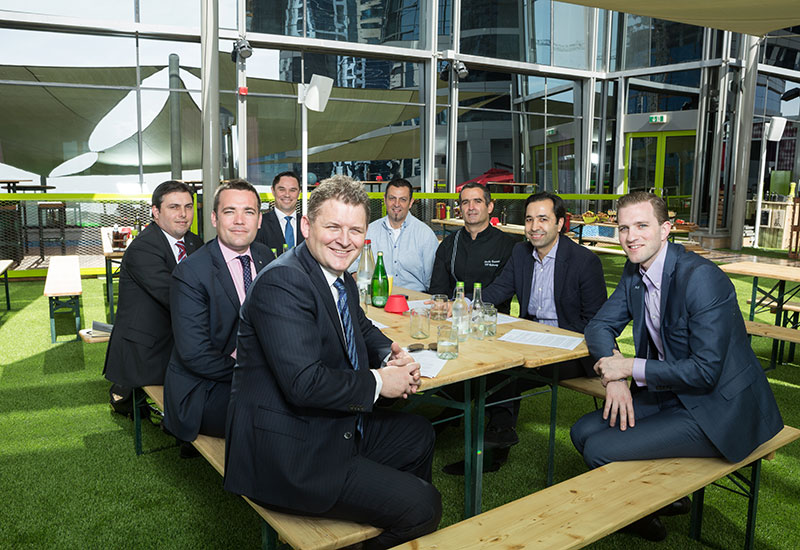Gone are the days when restaurants in hotels were all about in-house brands. Just a decade ago, leasing spaces within a hotel, working on franchises, or entering into a profit-share partnership was rare.
The market has shifted - Devina Divecha finds out the nitty gritty of third-party concepts and in-house brands, the differences between the two, and whether the twain shall meet
Panel of experts

| Advertisement |
- Marc Gicquel, regional director of F&B, Arabian Peninsula, Hilton Worldwide
- Julien Besancon, cluster F&B manager, Hilton Jumeirah and The Walk
- Sascha Triemer, VP culinary, Atlantis, The Palm, Dubai
- Alban Daubenton, director of F&B, Amwaj Rotana
- Felix Hartmann, director of operations, Media One Hotel
- Naim Maadad, CEO, Gates Hospitality
- Sadettin Kaya, executive assistant manager F&B, Mina Seyahi Complex
- James Worthington, director of F&B, InterContinental Dubai Marina
In the current climate, hotel F&B usually comprises in-house concepts and third-party brands — whether by way of rent, a franchise or a profit-share model. With all these varietals, the properties face a myriad of opportunities and challenges — ranging from profitability and budgeting, to operations and recruitment, among other key issues.
There has also been a growing shift seen in the way hoteliers approach restaurants, now plumping for more empowerment within restaurants. This model has seen groups such as Jumeirah and Hilton Worldwide work on having a chef patron or general manager responsible for the restaurant and its performance.
In the age of growing importance of F&B in the Middle East market (indeed, according to STR Global, total F&B accounts for approximately 37% of revenue across the region), what is the future of the Middle East hotel restaurant? Is it third-party managed outlets? Is it in-house concepts? Or are we looking at a healthy combination? And in this tussle of power between the two, what are the factors hoteliers and restaurateurs must consider?
Apples to oranges?
Do hoteliers have a clear preference on whether they want more third-party concepts in their property versus in-house brands, and do these even compare? Sadettin Kaya, executive assistant manager F&B, Mina Seyahi Complex, says the question is very pertinent to the Dubai market because in other parts of the world, like Asia, third-party operators are not in high demand.
He explains: “Because of the type of clientele we are catering for, people are expecting more and more brands they are familiar with, and have heard of.”
Gates Hospitality CEO Naim Maadad says the two kinds of concepts are very different, and adds: “We should never compare our own hotel restaurants within a hotel with third-party leased or franchised F&B outlets — they are totally different businesses and I think what we should be looking at is, how do you find a vacuum and find the right business model for that vacuum?”
The battle between operators and hoteliers comes about, Maadad says, because they are different businesses in terms of outcome, operations, recruitment, and even legality.
Hilton Worldwide regional director of F&B, Arabian Peninsula Marc Gicquel says the important thing to consider was that the aim should always be to create an F&B destination — no matter where it is — and that third-party brands should be a complementary offer with hotel brands.
He also echoes the statistics from STR Global and says: “In this part of the world, in some hotels, we sometimes have more F&B revenue than we have in rooms and that totally changes the equation. F&B is a key element to drive the hotel as a whole, and a good mix is a win-win situation.”
Maadad adds the business offering caters to different audiences. He says: “If we’re to be honest with each other, until hotel brands are treated as self-standing units, they don’t actually pull in a lot of local residents. They cater for hotel guests.”
However, Gicquel disagrees and says that because of the nature of alcohol licensing in the region, people do venture into a hotel if they would like to visit a licensed restaurant, athough he agrees that operational mind-sets need to change to learn from standalone restaurants.
Article continues on next page ...









 Search our database of more than 2,700 industry companies
Search our database of more than 2,700 industry companies









